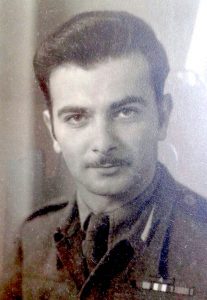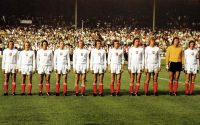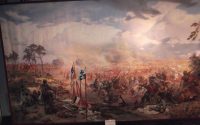Resettlement
On 8th May 1945, World War II hostilities in Europe ceased, Germany surrendered unconditionally and all Europe revelled in the silence of peace. Thereafter, for a few days 250,000 Polish servicemen put their next dilemma to one side. Whilst the servicemen fighting alongside the Allies and the partisans and resistance in Poland battled against the common Nazi foe, a political battle unfolded in London, Warsaw and Moscow. It soon became clear that the London based Polish government in exile was to be sacrificed by the Western Allies; United States of America and Great Britain, as the price for the anti-Axis (Germany,Italy and Japan) alliance with the USSR. Stalin’s USSR had already installed a Moscow-based Polish provisional government in Warsaw, whilst promising free elections at a later date.
Those 250,000 Poles now faced a choice; Repatriation to Poland or Resettlement in Britain. The British government of the day would have preferred all those Poles to return to Poland. For all the kindness shown to the Poles by ordinary British people, the government cold-shouldered them.’ It was alright to help us defeat Nazi Germany, but go home now’ seemed to be the unofficial position. It’s been said that British citizens needs came first, which is completely understandable, and the presence of the Poles was an embarrassment to the Foreign Office whose priority was to avoid offending the USSR and Stalin in particular. For this reason the Polish Forces were not permitted to attend the Victory Parade.
The regime now entrenched in Poland viewed the wartime resistance loyal to the government in exile in London with suspicion as it did with returning servicemen who had been based in the west. Moreover, in the radical boundary shifts of the re-created Polish state, vast tracts of eastern Poland had been annexed by and incorporated into the USSR. My father’s home city of Lwów was one such place. Poles living in that area were forcibly expelled and re-settled in the former German territories now part of western Poland. The German people living in that area were in turn expelled and re-settled or more appropriately ‘dumped’ in Germany. The population of this new Poland was homogeneous in character, something Poland had never been and which shocked my father (being of mixed Polish, German, Hungarian and Armenian ethnicity) on his visit to Poland many years later. This was the difficult decision now facing those Polish servicemen. It is estimated that 105,000 returned, many hoping that the Stalinist regime would soon collapse or be ousted in a General Election. Most came from areas which had been Polish before the war and were still so after the border shifts. Some of those who did return were subjected to intense interrogation. Their fate may never be known. The decision to resettle in Britain was for my father and thousands of other Poles their only option. And so, in 1946, the Polish Resettlement Corps https://en.wikipedia.org/wiki/Polish_Resettlement_Corps was created.
When my father arrived in Britain in 1940, he was clean shaven. Over the course of time he grew a moustache probably in a vain attempt to look like the Hollywood star of the 1940’s Clark Gable.
My mother was hooked when she and my father met for the first time in 1940 not long after he arrived in Britain. Suggestions from his father to move to Germany and start again as a family, he ignored as he had other plans. My grandfather even suggested to my father about the family moving to Germany to enrol together at a college of building, near Stuttgart. How ironic would that have been – helping rebuild the country they played a small part destroying ! Such is the insanity of war. In any case, intending to marry and settle, but without a job, qualifications (he had not yet taken the baccalaureate, the Polish equivalent of A-levels, as war had interrupted his schooling) and only a little English, he took advantage of the opportunity offered by the Polish Resettlement Corps and enlisted on 11th November 1946. The first time I saw this document, it struck me that I must have received my form-filling gene from my father as mine too are always full of scored out wrong answers!
resettlement docOn 12th April 1948, he was discharged from the Resettlement Corps and transferred to the Royal Army Reserve, the final stage in his integration into society in Britain, and particularly Scotland, and now began the search for settled employment, especially urgent as he and my mother were now married. She was from a large family which must have helped assimilate him into his new environment. It would be a few years later and numerous jobs, including a railway porter, before he studied and gained a nursing qualification. His dream, before the war, had been to study mathematics or physics and emigrate to Germany to work. His mother had always wished him to become an officer in the Polish Army. I know my father was never destined for the latter as he had a tendency to pay only lip service to all forms of authority.
In a new country, unaware of the fate of his father and lost contact with his mother, whatever went through my father’s head then he never divulged and as I was growing up and he would quickly change the subject whenever pressed. He was never moved to anger, but made a few light-hearted remarks, which in hindsight must have been very difficult. I think politicians refer to it as ‘collateral damage’. In 1974, he would return to Poland to try to find answers to his own questions and those which my mother, my sister and myself had always asked. He would find Poland a very different country.
End




